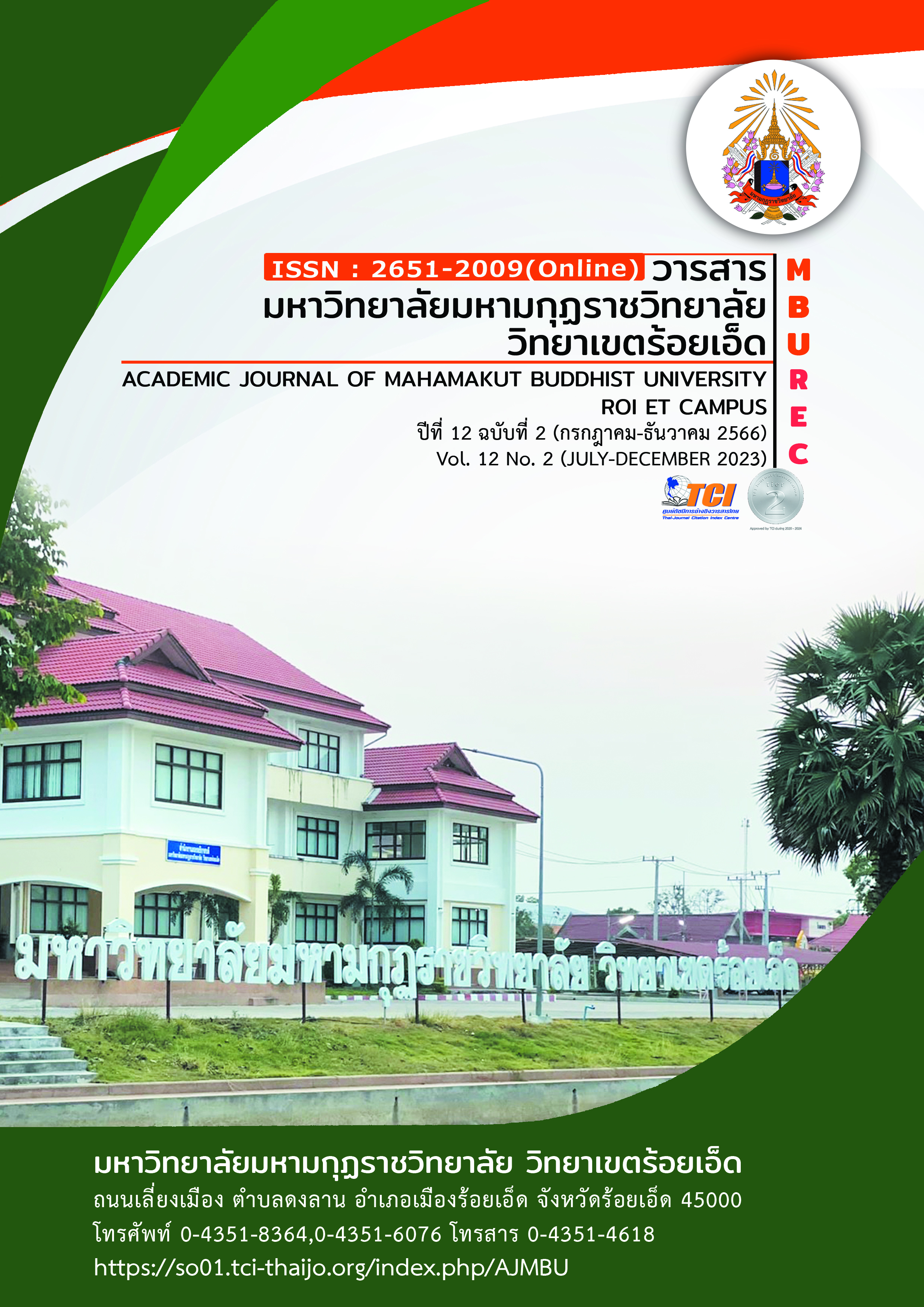GUIDELINES FOR THE DEVELOPMENT OF THE GRASSROOTS ECONOMY THROUGH COMMUNITY ENTERPRISES FOR SOCIETY
Main Article Content
Abstract
This academic article intends to present guidelines for developing the grassroots economy or community economy, that is, conducting various economic activities from the production level to the consumption level. It is a matter of community participation in thinking. action Receiving benefits and joint ownership After studying and analyzing relevant documents, the author would like to present guidelines for developing the grassroots economy through community enterprises for society, consisting of: 1. The role of the government should fully promote and support the operations of community enterprises in the areas of policy, budget, academics, and regulations. law Production factors and related personnel have a duty to support and subsidize, 2. The role of the private sector (private sector). The private sector should play a role in developing the grassroots economy through community enterprises, including supporting, promoting and helping drive Including facilitating various enterprise networks to assist the government. Both are raw materials Factors of production, capital, equipment, and various knowledge In driving policy, 3. The role of civil society should be to drive network expansion and help fill in the limitations of enterprise groups that are still weak in order to be able to drive towards success, and 4. The role of the network of enterprise groups should also be to play a joint role in helping and supporting each other in various fields. for sustainable success.
Article Details

This work is licensed under a Creative Commons Attribution-NonCommercial-NoDerivatives 4.0 International License.
References
กรมพัฒนาชุมชน. (2565). การพัฒนาเศรษฐกิจฐานรากตามยุทธศาสตร์ชาติ 20 ปี. สืบค้นเมื่อ 29 มีนาคม 2565. จาก https://district.cdd.go.th/khowang/wp-content/uploads/sites/ 531/2019/09/128785_ยุทธศาสตร์ชาติ 20 ปีกับเศรษฐกิจฐานราก 01-1.pdf
กาญจนา รอดแกว ภุชงค์ เสนานุช และรณรงค์ จันใด. (2563). รายงานฉบับสมบูรณ์การศึกษาความคิดเห็นเกี่ยวกับนโยบายการพัฒนาเศรษฐกิจฐานราก เพื่อการพัฒนาอย่างยั่งยืน. กรุงเทพมหานคร : สำนักงานศูนย์วิจัยและให้คำปรึกษาแห่งมหาวิทยาลัยธรรมศาสตร์.
กาญจนา รอดแกว ภุชงค์ เสนานุช และรณรงค์ จันใด. (2564). การศึกษาความคิดเห็นเกี่ยวกับนโยบายการพัฒนาเศรษฐกิจฐานรากเพื่อการพัฒนาอยางยั่งยืน. วารสารสถาบันพระปกเกล้า. 19(1). 48-66.
คณะอนุกรรมการยุทธศาสตร์เศรษฐกิจฐานราก. (2559). คู่มือการส่งเสริมการพัฒนาระบบเศรษฐกิจฐานราก. กรุงเทพมหานคร : สถาบันพัฒนาองค์กรชุมชน(องค์การมหาชน) กระทรวงการพัฒนาสังคมและความมั่นคงของมนุษย์.
ชฎิล โรจนานนท์. (2558). วิสาหกิจเพื่อสังคม (Social Enterprise) คืออะไร โครงการศึกษาโดยไม่หยุดนิ่งของสำนักนโยบายพัฒนาระบบการเงินภาคประชาชน. สืบค้นเมื่อ 29 มีนาคม 2565. จาก https://www.dop.go.th/download/knowledge/th1596811756-298_4.pdf
นฤมล นิราทร. (2565). เศรษฐกิจฐานราก : บทบาทและความท้าทาย. กรุงเทพมหานคร : สถาบันวิจัยและให้คำปรึกษาแห่งมหาวิทยาลัยธรรมศาสตร์.
นันทกานต์ สมบัติสวัสดิ์. (2559). แนวคิดเรื่องธุรกิจเพื่อสังคมของมูฮัมหมัด ยูนุส. วารสารปณิธาน. 12(1). 1-16.
แผนแม่บทภายใต้ยุทธศาสตร์ชาติ. (2563). แผนที่ 16 เศรษฐกิจฐานราก. สืบค้นเมื่อ 27 มีนาคม 2565. จาก http://nscr.nesdc.go.th/masterplans-16/
วิภาภรณ์ ชัยรัตน์. (2560). รูปแบบของวิสาหกิจเพื่อสังคมของรัฐบาลกับการพัฒนาเศรษฐกิจของประเทศอย่างยั่งยืน. สืบค้นเมื่อ 27 มีนาคม 2565. จาก http://www.dsdw2016.dsdw. go.th/doc_pr/ndc_2559-2560/wpa_8229.html
ศักดิ์ดา ศิริภัทรโสภณ. (2558). การศึกษากรอบแนวคิดเพื่อการพัฒนาวิสาหกิจเพื่อสังคมในประเทศไทย. วารสารสมาคมนักวิจัย. 20(2). 30-45.
Phongphit, S. (2007). Community enterprises are not community businesses. 3rd ed. Bangkok : Jarernvit printing.


